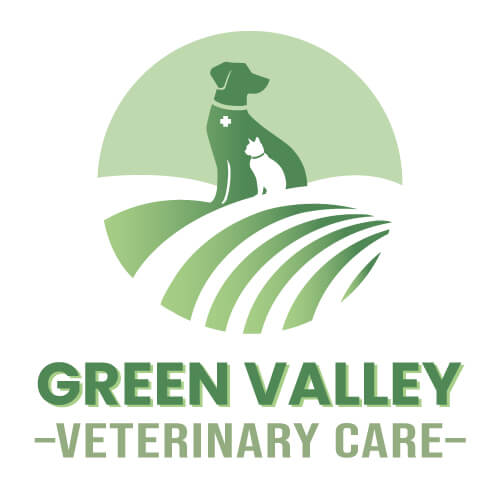How does dental health impact the overall health of my dog?
That is a very good question. So just like us, dogs have teeth too, and we brush our teeth hopefully every day, and dogs don't get their teeth brushed every day. So with long-standing tartar and plaque buildup, we will get dental disease. And overall, once the dental disease becomes advanced, we can suffer from periodontal disease, gingivitis, and then tooth loss. Those situations can lead to really bad breath or even pain in your dog's mouth.
Lori Mathews, DVM
Green Valley Veterinary Care
How can I care for my dog's teeth at home?
That is a very good question. We definitely recommend toothbrushing, and that is something that we can talk about more in depth during an appointment because there's some nuances to that that we'd want to instruct you on before you try to attempt it. But there are some dog chews or dental chews and dog treats that can help your dog's overall hygiene. We can go through that more in depth during an appointment too on which dental chews we would recommend.
What are some signs and symptoms of dental disease in dogs?
Number one complaint that we see for dental disease in dogs is dog's bad breath. The owner will notice the dog's breath when they're feeding or just petting your dog's head. Then also you can sometimes see some blood in the mouth or blood left over on dental chews or dental treats. Bad breath, blood in the mouth, sometimes they'll have difficulty chewing.
How often should my dog's teeth be checked?
No matter what, we're going to recommend a physical exam once a year on your dog, and during that physical exam, I or one of the other doctors here will get a good look at your dog's mouth so we can do a dental exam and assess for periodontal disease, gingivitis, tartar buildup, bad breath. So once a year it's recommended. As your dog is getting older, we might change our recommendations based on your dog's oral health, and we might do a dental exam twice a year. It depends on your dog's needs.
If you have any other questions, please give us a call at (937) 358-8142. You can also email us at [email protected] and we will get back to you as soon as we are able. Don't forget to follow us on social media: Facebook and Instagram
Dog Dental - FAQs 1
Lori Mathews, DVM
Green Valley Veterinary Care
What does a dental cleaning look like in your office?
First of all, we would have to see you for a physical exam and make sure that your dog is in need of some dental cleaning. And on the morning of the cleaning itself, you'll come in at around 8 a.m., you'll drop your dog off, we will keep your dog with us for the day. We'll give some medications before his or her procedure to provide sedation and anti-anxiety relief, and we'll place an IV catheter. Then our patients go under general anesthesia where we intubate them or put a tube in their airway so we can help control their breathing to keep them safe. We take a full set of dental x-rays on all of our patients that have dental work done with us here. Our licensed nurses will clean, scale, and polish your dog's teeth while I or one of the other doctors reviews the x-rays to determine if any extractions are needed.
How long does a dog dental cleaning appointment take?
It depends on the size of the dog and the severity of the disease. Your pet will be with us for the full day, but the cleaning and dentistry itself can take anywhere from one to four hours. It depends on what needs to be done.
If my dog needs extractions, will he be given pain medication?
Absolutely. If we anticipate extractions, we will give your dog pain control before we even start working on your dog's mouth. During the dental work, we use lidocaine just like your normal dentist does. So even under anesthesia, your dog's mouth will wake up comfortably. We will also send home additional pain medications for you to administer for up to a week after the dental cleaning with extractions.
When my dog gets dental x-rays, what does this entail?
Good question. Just like when you go to the dentist and they take x-rays of your mouth, your dog will be under anesthesia and we will use the same equipment that human dentists use to take dental x-rays. Our nurses will perform the x-rays and our doctors will interpret them.
If you have any other questions, please give us a call at (937) 358-8142. You can also email us at [email protected] and we will get back to you as soon as we are able. Don't forget to follow us on social media: Facebook and Instagram
